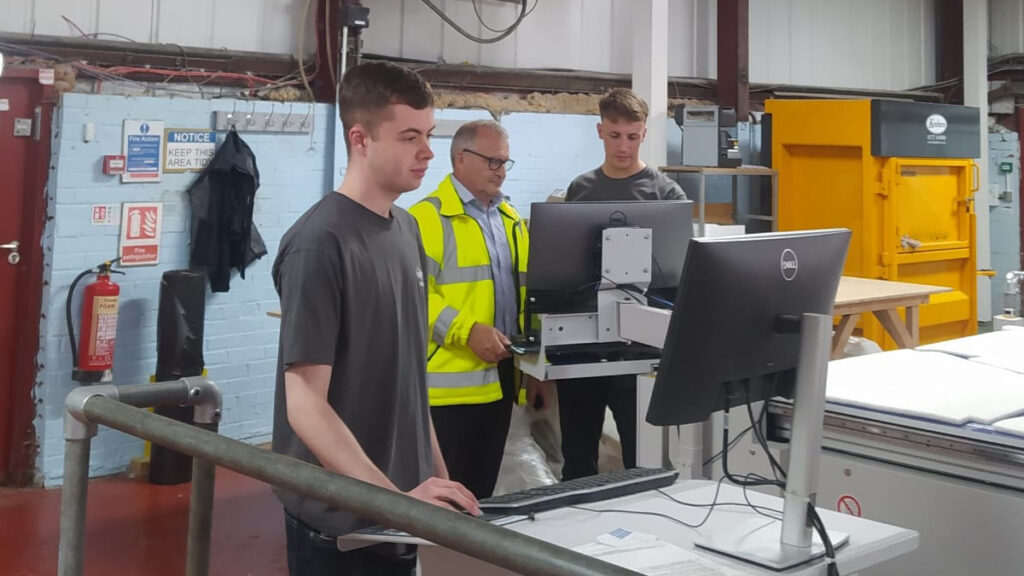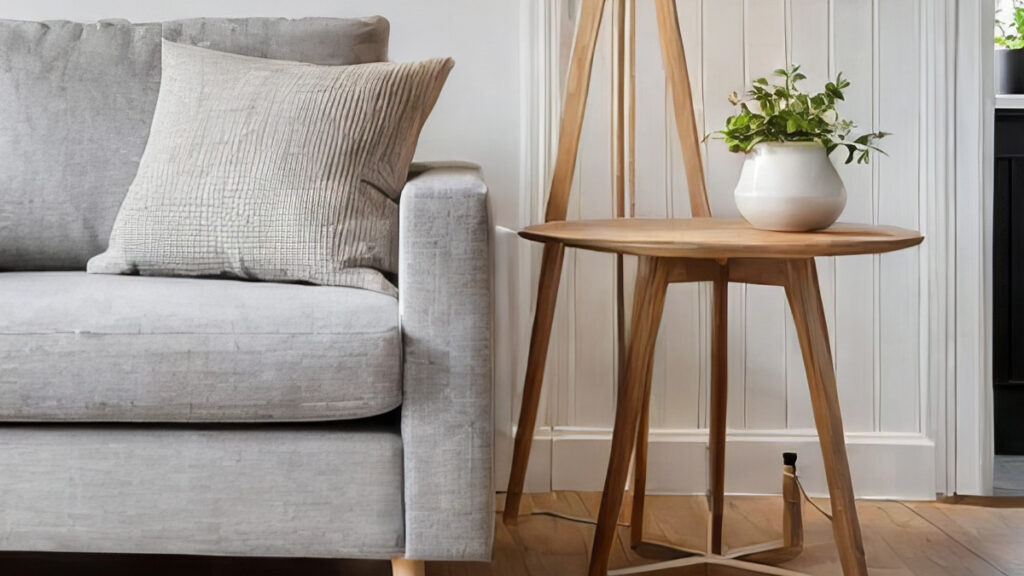Growth Engines: The manufacturer that is boringly brilliant
The West Yorkshire company breaking the mould of comfort to boost revenue and profit

“My business is very boring when you consider all the other businesses you likely meet,” began Richard Prudhoe, MD of Fibreline Limited. My ears perked up. Every boring business I’ve met carries the latent potential to open magnificent market opportunities.
He continues: “It’s a simple business comprising of traders, blocks, and bales. Our challenges are complex: commoditisation, logistics, labour intensive, unpredictable demand, reactionary, 6-day order books, no long-term contracts, and no credit lines for our customers, making us their bank.” Ouch. There had to be more…
Established in the early 80s by his father, Prudhoe carries the pressure of family pride and ownership responsibility. “It’s a family business, and it ain’t going to fail on my watch,” he says. “I have a deep obligation and commitment to our employees, some of whom have been with us for many years. And then, I can be a bit competitive too. I want the business to thrive and do well. And be the best in our small industry.”
His modesty belied his actions. What Prudhoe has done and plans to do earns the admiration of any front-footed, entrepreneurial business driver. The company is based in Keighley, West Yorkshire, and is the UK’s largest independently owned manufacturer of upholstery and cushion fillings. With over 235 employees, it operates a 100,000-square-foot facility that runs a 24-hour-a-day, five-day-a-week operation. Utilising advanced technologies such as robotic fabrication and 3D scanning, Fibreline produces over 5,000 sofa fillings weekly. Their product range includes polyester, foam, and feather cushion fillings.
Growing pains
Prudhoe says that space is a key constraint on growth. “We get in bales of feathers and blocks of foam, which we process into the final product, customised to our customer’s furniture specifications. The volume of space is unbelievable. At any point, we can only carry six days of stock.”
Competition between customers in the market impacts Fibreline profoundly. He says: “Our customers are constantly innovating their designs to compete in retail and commercial markets. They want innovation in the shapes, construction, and materials we use and fabricate as the fillers for their furniture.”

In a commoditised market, winning the deal at the right price means a deep, ongoing investment is needed in plant, equipment, and labour. The Fibreline facility is a hum of activity between people, robots, CNC machines, furnaces and Dacron and Insulator Parts machinery, converting more than 100 tons of foam, fibre, and feathers weekly.
Each new investment in machinery increases Fibreline’s ability to push innovative designs to their customers and differentiate as much as their ability to respond to bespoke demands on designs requested from customers. Having it all in-house also enables stock turns and space management on the JIT demands of their customers.
“We have worked hard to earn around 26 per cent of the market,” Prudhoe said in response to his ongoing investments. “We plan to increase our market share by doing what we do and investing further to build our capacity and capability to be the industry’s most innovative and responsive manufacturer. If we can increase to 35 per cent market share in the next five years, it will derisk our business.”
Risk is rife though. Due to the nature of the industry, Fibreline’s customers seldom get access to credit, and it often has to carry long payment terms. A significant risk is around the corner for the business should its larger customers come into difficult times
Like with many businesses, another risk that always has the potential to appear on the horizon is large clients undergoing difficult times. Prudhoe works hard at these relationships to help keep him ahead of their needs, responsive to their growth plans and manage the relationship stresses of lagging delivery or payments.
Next-level growth
The company’s most recent investment sees the 15,000-square-foot factory extension launch in October to accommodate two new machine lines imported from the US. This investment will allow Fibreline to manufacture a range of products to reduce the cost of sofa manufacturers for its customers.
Scaling before growth is crucial to avoid chaos in your supply chain, production, and team relationships. Well-planned growth requires a framework for decision-making, supported by reliable procedures and a focused team, leading to consistent organic growth. This foundation allows focus on next-level growth, innovation, and profitability, increasing business value and attracting growth capital.
Prudhoe exemplifies this approach by targeting specific segments, such as sofa manufacturers and retailers, understanding their needs, and building solid relationships with key influencers. His investments in technology, team skills, and capacity have solidified the company’s market position.

Next-level growth shifts profitability by leveraging a scalable foundation. Strategies include expanding product ranges, adding value-added services, entering new regions, M&A, or establishing new industry segments. It’s critical to maintain the scalable foundation of production, processes, and team. New revenue streams can be tapped by choosing growth options that leverage this foundation, enhancing profitability and team motivation.
In Prudhoe’s shoes, I would explore adding segments that leverage the existing scalable foundation to accelerate growth in the sofa furniture segment. Potential segments could include manufacturers of protective packaging for electronics, tools, medical, and industrial components.
The healthcare and medical industry also presents opportunities driven by the ageing population and increased demand for related products. Additionally, the rise of remote work boosts demand for comfortable and ergonomic office and SOHO furniture.
Or perhaps the automotive sector, specifically focusing on the motorsport and classic car manufacturer and service industry? Wait, a former Growth Engines business, Ginetta, under the leadership of Amy Tomlinson, offers a warm entry point and discussion…
Growth Engines showcases remarkable yet frequently under-recognised business owners who collectively form the basis of our economic engine and whose entrepreneurial fortitude creates a more inclusive and prosperous Britain. It shares their journey, highlighting hard-earned insights and lessons on overcoming challenges and driving business growth.
Its creator, Pavlo Phitidis, is a founder of Aurik, a business scale and growth execution platform for established business owners. He also speaks internationally and authored two books: Sweat, Scale Sell: Build Your Business into an Asset of Value and Reset, Rebuild, Reignite: Turning Crisis into Opportunity



